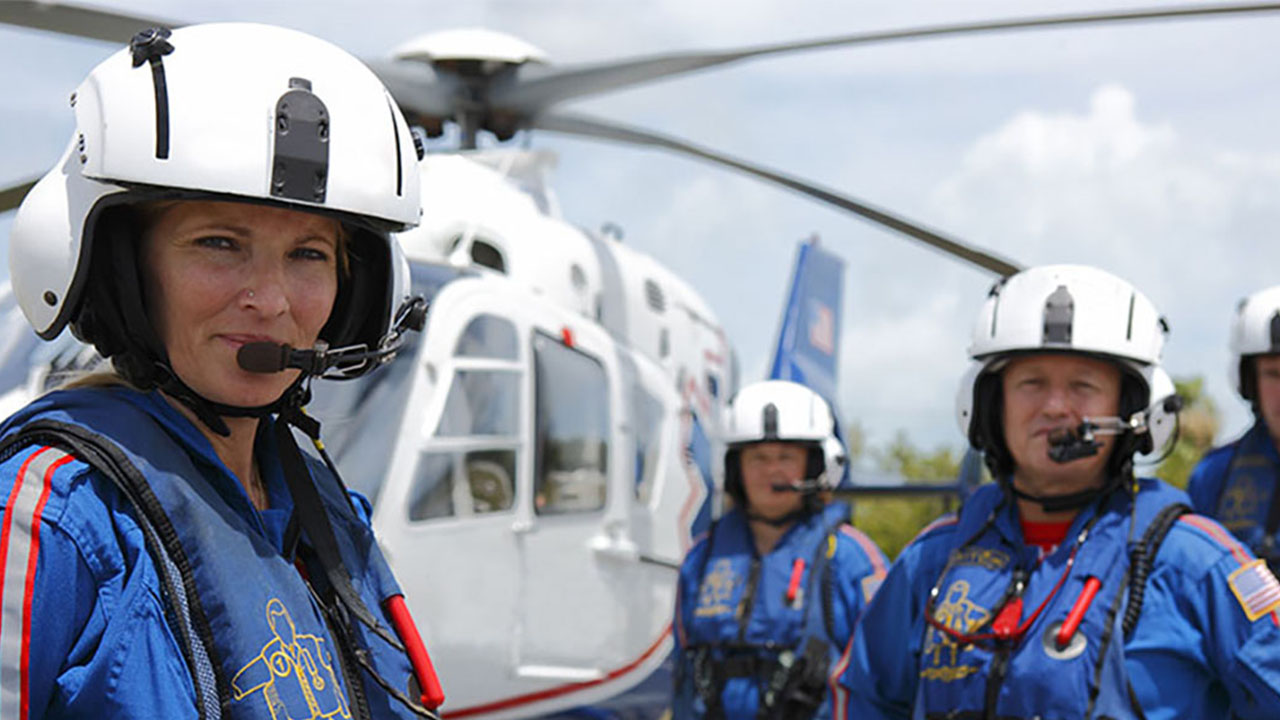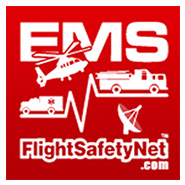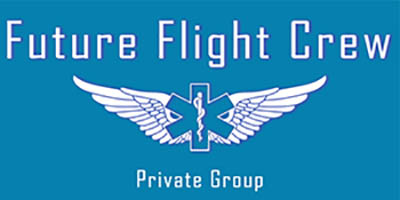— And How To Keep It From Ruining Your Life
Sometimes really smart people
do really dumb stuff.
If you work EMS or air medical,
this isn’t news.
In fact, it’s common.
It’s one reason you’re so busy, right?
Someone who normally makes smart decisions, makes a dumb one.
And now EMS and air medical are needed, STAT!
But what happens when EMS and air medical make bad decisions?
And let me be clear. I’m not talking about patient care. EMS and air medical professionals have patient care locked down. They almost never fail taking care of others.
What I’m talking about is something more difficult. Much more difficult.
I’m talking about EMS and air medical taking care of themselves.
Sadly, EMS and air medical professionals fail to take care of themselves almost as often as smart people make dumb decisions.
It happens. A lot.
For years I watched nurses, medics, and EMTs use up so much of themselves helping others, it seemed there was nothing left to take care of themselves.
The irony of lifesavers, I suppose.
“EMTs, nurses, paramedics and pilots put so much of themselves into saving lives, they unknowingly destroy their own lives in the process.”
It’s a sickness.
A sickness I call Ambulance Induced Divorce Syndrome (AIDS), although it could just as easily be called Aviation Induced Divorce Syndrome for the air medical lifesavers.
What is Ambulance Induced Divorce Syndrome?
Ambulance Induced Divorce Syndrome is a “disease” that causes EMTs, medics, nurses and pilots to lose what they love most in life.
AIDS wrecks marriages. AIDS destroys families. AIDS is the source of immeasurable pain and suffering.
What causes AIDS? And is there a cure?
Ambulance or Aviation Induced Divorce Syndrome is caused by misplaced priorities.
AIDS is what happens when EMS and aviation professionals identify so strongly with their work, they forget about the rest of their lives. They forget about what really matters. They forget about their spouses, their kids, and the people who love them.
They fool themselves into believing success as a medic, nurse or EMS pilot is somehow more important, or just as important, as success as a husband, brother, father, wife, sister, or mother.
How do I know?
I had the sickness. Bad.
I had AIDS for years.
I was a workaholic who picked up every extra shift. I routinely re-arranged my family life for my work schedule, and thought nothing of it. It was easy to rationalize and easy to do.
After all, America rewards strong work ethic. Hard work, determination and grit are what built our country, right?
All good. Except that’s not the kind of work I’m talking about. I’m talking about intentionally putting your work before your family.
I’m talking about how medics, nurses and pilots use strong work ethic to rationalize their never at home, absentee husband, father, mother, sister (you get the idea) behavior.
I’m talking about working extra EMS shifts because you identify more with EMS than your own family.
Sounds harsh. I know.
Think I’m kidding?
Think it can’t happen to you?
Think again.
Who Gets AIDS
Who can get AIDS and are you at risk?
Reality is anyone can fall victim to AIDS. Putting work before family isn’t unique to EMS and air medical. But EMS and air medical professionals are (in my opinion) at greater risk.
Why?
The demands of shift work is one reason.
Emotional investment in the job is a second reason.
EMS and air medical are highly personal careers by nature.
EMS work takes its toll. Nobody is immune.
It’s impossible to avoid emotional connections to the work. In fact, if you’re not emotionally connected to the work, you’re probably not doing it very well, right?
Note that I’m not talking about display of emotion. EMS and air medical are stoic warriors when it comes to public displays of emotion. But no doubt about it, they’re still feeling it on the inside.
Warning Signs of AIDS
Here are 10 warning signs of Ambulance Induced Divorce Syndrome
#1 You Put Work Ahead of Family
Have you ever picked up an extra shift to skip out on a family event?
It’s okay to be the “go-to” gal or guy at your EMS station or air medical base. But remember, respect goes both ways.
You should not be expected to pick up every open shift.
And if you can’t work a shift because of prior family commitments, you absolutely should be able to say “no” without fear of punishment or retribution. Sometimes the answer is no.
If on the other hand, you’re the one scheduling shifts over family events…
Well, here’s your sign.
#2 You’re Too Tired From Work To Spend Time With Family
Does a big portion of your family time consist of you laying on the couch trying to regain lost energy?
Is your main focus getting ready for your next shift?
If so, it’s probably a sign you’re working too much. It’s definitely a sign you’re not really spending family time with your family. You’re not really ever “in the moment” with them.
You’re either at work or consumed by getting ready to go back to work. Neither is family time.
What good is family time if all you do is sleep through it?
#3 Your Spouse is Your New Career Therapist
Everyone talks about work with their spouses. It’s healthy, it’s normal and there’s nothing wrong with it…
Until…
Your primary reason for talking with your spouse is to vent about work or get more advice about how to handle a situation at work.
Your spouse is not your career therapist.
If he or she starts to feel this way, here’s your sign.
How can you tell if your spouse feels this way? Ask them directly or look for signs like eye-rolling or dread the next time you start to talk about work. Spending time together should be joyful, not a chore.
#4 Work Is All You Talk About With Your Spouse
Like I mentioned in #3, it’s okay to talk with your spouse about work. We all spend so much time working, that work is a natural topic of conversation.
The problems start when work is the only topic of conversation.
There’s more depth to you than your last case, call or flight. There’s more to your life than being a good medic.
Realize it. Appreciate it. Don’t forget it.
#5 You Cancel Family Events Because of Work
Have you ever canceled (or skipped) a family event for work? Here’s your sign.
Take a moment and really think about this. You probably take your job as a parent, spouse, friend, all the above very seriously, right?
Yes, of course you do.
Be honest with yourself. How much success are you having when you cancel family events to work?
Don’t rationalize. Be objective. It’s a no-brainer.
Canceling family events for work is a sure sign of AIDS.
#6 You Argue More With Your Spouse
All work and no play takes a toll on EMS and air medical professionals.
A common side effect is mood swings.
Mood swings that can lead to increased arguments with your family.
The affect on your family and spouse is often immediate. If you find yourself suddenly arguing about stuff you never used to even care about — here’s your sign.
#7 You Have Less Patience With Your Family
When you work long hours do you find yourself less patient with your family?
It’s a common warning sign of AIDS.
Think back to asking your patient the same thing 10, 12 or more times. It takes patience and self-discipline to maintain your composure and calm demeanor, right?
The problem is that by the time you get home and need more understanding and patience for your own children, your patience is all used up.
If you feel yourself becoming less patient than normal with your own family, beware.
#8 You Don’t Feel Like Socializing
AIDS saps the life out of you.
It destroys your energy, motivation and desire.
Have you lost or are you losing your desire to socialize with other people?
If so, it could be a warning sign.
#9 You Realize You’re Happier At Work Than Home
This is a billboard size warning sign.
Or at least a warning sign that should get your immediate attention.
Does it ever make sense to be happier at work than home? That’s a pretty clear signal something is wrong.
It’s okay to love what you do. But it’s not okay to love what you do more than your own family.
#10 You Start Making More Sacrifices To Make Everyone Happy
Your first reaction to AIDS will likely be compensation.
Many EMS and air medical professionals are “givers” by nature. Almost all are type A personalities.
The combination is brutal.
You realize your family is getting less attention than they deserve. You compensate by making more sacrifices of your already scare time —or you work more to compensate financially.
It’s a vicious cycle and a sure warning sign.
Knowing The Warning Signs Isn’t Enough
Changing your own behavior is hard.
But the hard truth is, knowing the warning signs isn’t enough.
The only cure for AIDS is changing your behavior.
It isn’t easy.
Habits are difficult to change.
I can especially hear the protests from EMTs and medics. And with good reason.
I don’t think I ever worked with a medic (air or ground) who worked only one job. Working a handful of jobs, and back to back shifts is a way of life for most medics.
Unfortunately, so are some of the AIDS warning signs and consequences.
Don’t Be A Victim
AIDS (both ambulance and aviation) is curable. The choice is yours. Don’t wait until it’s too late.
Your family needs you. And you need your family. If all you have left after a 30 year EMS or air medical career is memories of flying and running cases, I guarantee you’ll wish you had more. You’ll wish you had your family.
[divider style=”10″]
Interested in learning more about how to get started as a Flight Medic, Flight Nurse or EMS Pilot?
Join our Future Flight Crew Private Facebook Group. Answer 3 simple questions to join, takes less than a minute.
CLICK THE BANNER to Sign Up:
[arrows style=”arrow-red-11.png” align=”left”]
Listen to the audio version here:
Connect with me on LinkedIn here.



